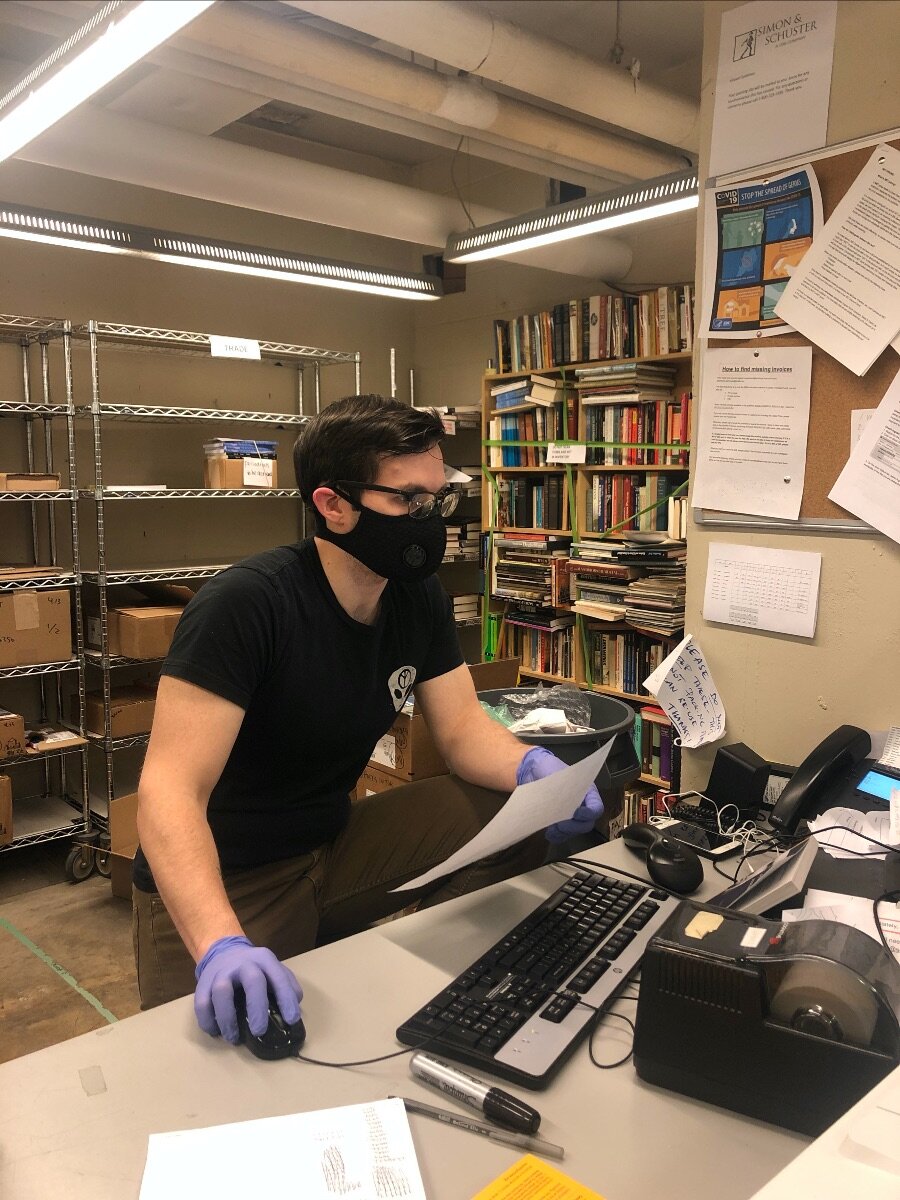I visited UChicago for the first time in June—it was the summer before my senior year of high school and I was nervous. I had no idea where I would be spending my college years.
However, when I entered the Seminary Co-op, I knew that I needed to attend UChicago—if given the opportunity. I’d been strongly considering the school for a long time, but the bookstore was a physical representation of all that I wanted from my university experience. I wanted to inhabit a community that truly cared about books; more importantly, I wanted to join a community that loved, respected, and defended the free exchange of ideas. And I wanted a place to converse about those ideas frequently.


Almost three years later, the Seminary Co-op has become just that. It’s the place I go to meet friends, to study, and to wander through the book stacks after completing particularly stressful physical science exams. I often find myself sitting in one of the store’s many chairs, with music blasting through my earbuds as I skim the titles. And I frequently find myself struggling to limit my purchases (as I discovered when I confronted the imposing task of boxing all of my recent Sem-Co acquisitions in order to move off campus).
As such, when I think of the university, I also think of the Seminary Co-op; while the bookstore is independent of the university, it is a critical component of our community. And I want to support the store as much as possible—especially during these difficult times. The Seminary Co-op bookstores are not-for-profit and independent. But in order to stay independent, and in order to continue providing a work space and invaluable resource to Hyde Park, these stores need the support of our community.
For this reason, there is a current campaign to provide Covid-19 relief to the Seminary Co-op Bookstores. The goal of the campaign is to reach $250,000 and the fundraiser is already halfway past its goal. Any donation—no matter the size—will be invaluable to the continued work of the bookstores.


And even in these difficult times, the bookstores continue to provide support to the university community. Individuals may still order books from the Seminary Co-op. The bookstores continue to publish new Open Stacks Podcast Episodes. And the stores just launched a Children’s book recommendation series (simply contact kidsbooks@semcoop.com for recommendations!). The stores themselves have also physically transformed, as their workers fulfill web orders safely. And it is my hope that we, as a community, can continue to support the Seminary Co-op during the Covid-19 pandemic, and beyond.
And in case one is in need of book recommendations, included below is a list of three of my favorite books, whose subjects are particularly relevant to these troubling times.
#3: Gabriel Garcia Marquez’s One Hundred Years of Solitude
“Many years later, as he faced the firing squad, Colonel Aureliano Buendía was to remember that distant afternoon when his father took him to discover ice.” And so begins the story of Macondo: a small, magical town in the jungle, where the Buendía family resides for generations. I read this book while camping, last summer, and many of its descriptions have resided with me, ever since. Marquez’s magic realism is beautiful and this novel is his magnum opus.
One Hundred Years of Solitude is the type of book that sucks you in and doesn’t let go, as Marquez depicts everything from ghosts to levitating priests and seemingly endless rain. And the novel offers a much-needed escape into a magical world, though it is nonetheless shockingly like our own.
#2: Viktor E. Frankl’s Man’s Search for Meaning
The New York Times classifies this book as “survival literature,” and the classification is apt. After surviving Nazi concentration camps, psychiatrist Viktor E. Frankl carefully chronicled his experience. More than that, he depicted how he survived. And while this book’s narrative is hauntingly somber, it is also hopeful. By describing his own life story and the stories of his patients, Frankl argues that man can survive—even when confronted with atrocities. Thus, while Frankl writes that man cannot avoid his suffering, Frankl also writes that man’s existence is not a lost cause. Instead, Frankl encourages his readers to find meaning in their suffering, so that they may move forward and ultimately thrive.
#1: Amor Towles’ A Gentleman in Moscow
‘“Who would have imagined,’ he said, ‘when you were sentenced to life in the Metropol all those years ago, that you had just become the luckiest man in all of Russia.’” (Towles 292).
When Mishka remarks upon the Count’s luck, he’s right. Despite being placed under house arrest in the grande Metropol Hotel, Count Alexander Rostov builds a full life for himself. He is confined to a hotel during one of the most chaotic periods of Russian history, and yet he finds a way to make the best of his circumstances. He makes great friends, falls in love, and raises a young girl. And through it all, the Count never loses his composure or his sense of wonder. This is one of my favorite books of all time. And it a testament to the way in which a single individual can choose to be happy—even while living in a hotel attic, in Soviet Russia.


Click here, for thumbnail image.



